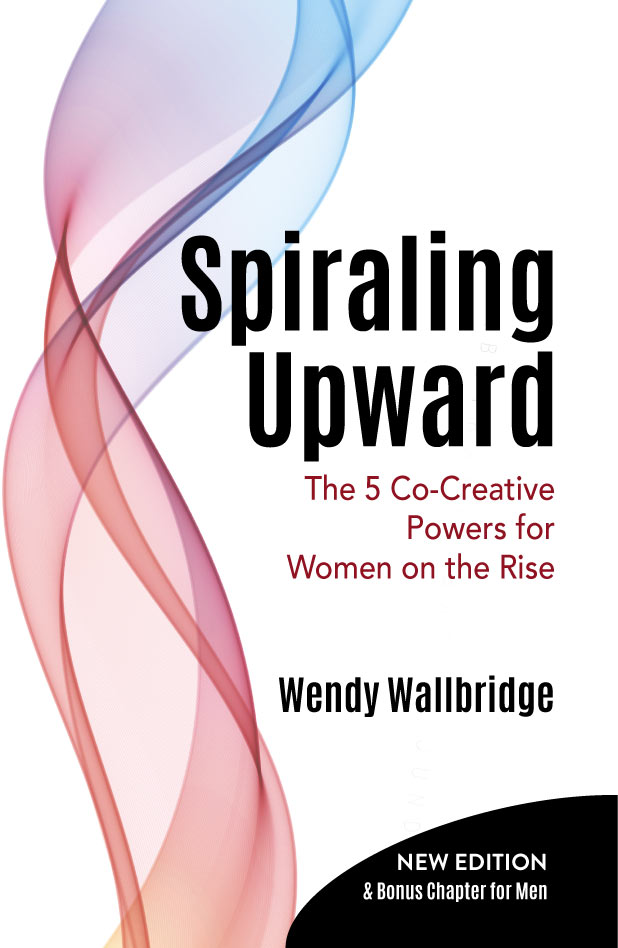2024 New Edition – Sneak Peek: Preface

In 2018, just a few years after the first edition of this book was published, I had the good fortune of joining my friend Lynne Twist and her husband Bill, of the Pachamama Alliance, on one of their Founder’s Journeys to the Ecuadorian Amazon with my son Chase. We flew in a twelve-person plane from Quito for a few hours over roadless forests before landing on a short dirt runway in Sapara territory.
As we walked toward the small palapa where the tribal welcome party awaited, a young boy greeted us carrying a baby sloth. We were told that the Sapara Tribe leaders wanted us to join a Purification ceremony to wash off any negativity from the outside world. After each of us was brushed with big branches, smoke was blown over us. The Tribe leader then gave each of us a name. Chase was told he was like a handsome tiger. Others were given names of flowers or other animals. When it was my turn, the Shaman declared that my name was Tirawicha—a leader of women who makes female energy equal to male energy. It was a surreal moment. He said it matter-of-factly, but his words reverberated in my head. If I had any doubt about my purpose, this mystical confirmation now removed it. But I also wondered, How will this ever be accomplished in my lifetime? And what is my part to play now?
Over the last decade, I’ve helped to facilitate thousands of professional women in the Spiral Up journey to make bold, positive changes in their behavior and lives—things like promotions, career pivots, visibility on top projects, time-outs, and new relationships. Many of these women are claiming the power they need to usher in an era of change that could lead to more equitable compensation, more flexible working situations, and a more inclusive tech industry at large. But along the way to making “female energy equal to male energy” by coaching women, I’ve discovered this: women’s empowerment is only half the equation. Until men share power, women cannot take their rightful place as co-equal leaders in society.
In the current (masculine) global paradigm, sharing power seems to mean losing something—it seems like a zero-sum game. But consider for a moment that when women step into their power, men actually have everything to gain. What if men knew what there was to gain? What if they, like that Shaman in the rainforest, knew that co-equal power was just matter-of-fact—not an outcome to be feared or dismissed? What if men knew that women’s empowerment was paramount to realizing our collective good? What if they realized that by allying with women everything they care most about gets better: relationships, health, productivity?
The past ten years of working with men and women in global tech companies in Silicon Valley has given me an insider’s viewpoint on what women need from men to take their rightful place as co-leaders, and what men need for their own wholeness. That’s what this second and expanded edition of the book seeks to provide: The final chapter I’ve added will offer what my original book left out. Simple and crucial steps on how men can ally and partner with women so we can all rise into a new paradigm together.
It is not up to women alone to create equity in the workplace. Women need to empower themselves, yes. Women have internalized oppression and have been socially conditioned in ways that keep them small. Spiraling Upward gives them access to their power—feminine power that, once sourced, provides a fountain of inspiration and energy to authentically express oneself and acquire external power for the good of all. But if women and non-binary people empower themselves, and then the structures and systems that are shaped by men don’t evolve as well, they can feel even more frustrated and stymied.
And the evolution of these structures and systems is more critical now than ever. In the face of the great strides women are making in becoming leaders and evolving our society and culture, there is an equal and opposite backlash to progress. Since the first publication of this book, almost a decade ago, we have collectively experienced a breadth of radical changes, from #MeToo to the mainstream wrestling with painful legacies of centuries of racism, sexism, and white supremacy. While welcomed by some, these movements have also been met with intense resistance. By any measure the degree of polarization in our nation is staggering. Right now, exclusionary laws are being passed that are anti-LGBTQ+, anti-abortion, and anti-immigration. Moreover, a toxic swirl of colonialism, patriarchy, and capitalism has led us to a convergence of crises: accelerating climate change, global pandemics, the extinction of half the world’s species, extreme economic inequality, the risk of losing our democracy, and an epidemic of loneliness.
Despite these devastating developments, the momentum for change is building. Right alongside our better-publicized dysfunction and backsteps, breathtaking advances are being made by millions of people who care about and are taking action for the climate, inclusion, and equality—people like you and me, whom I like to call the planet’s transformational team.
And so, we’re left with a paradox of opposing realities. A paradox is something that initially looks like a contradiction, but if you go deeper and consider it at a different level, something new emerges. It transcends the either/or and offers a fresh perspective. In times like these, when we hold those seemingly opposing realities in creative tension, human beings can rise to new levels of wisdom and wholeness. History has shown that it is during these periods that great inventions, social movements, and transformative ideas emerge.
What is emerging now is a fundamental shift in dynamics that centers on relationship and connection. This way of being is a source of power that I call “feminine.” This doesn’t mean you have to be a woman to embody it, or that all women do. It means the traits I discuss here have been assigned to women more than men across the world. This book was written to accelerate transformation, by showing professional women and female-identified people how to live from their values, embrace their feminine strengths, and elevate the ideals that will support healing in today’s world. But it is also here to honor the feminine in all of us. This approach of claiming feminine strengths has never been more relevant and can apply to any gender. So, when I refer to women or the feminine in this book, please hold these terms in their complexity, beyond their binary interpretations. The final chapter is here to help men support the feminine leadership their colleagues bring forward, and to help them operate beyond their “masculine” conditioning to embody twenty-first-century leadership.
The new emergent form of leadership will look very different than what we’ve seen over the last hundred years. No one could foresee that managers and leaders during the pandemic would need to be distress stewards, crisis control leaders, or mental health supporters. Our workplaces have changed forever, and the expectations of what comprises a successful leader include the capacity to connect authentically and successfully navigate relationships. People of every gender, ethnicity, and class are stepping up to lead with these powerful attributes. As women gain more equity and representation in positions of power and influence, you’ll see more and more decisions made that reflect the needs, values, and interests of those they serve. People who lead from that point of view will create a world that works for everyone.
These precarious and vulnerable times are crying out for a greater sense of connectedness with ourselves and one another. We long to see this in our culture and in our leaders. We are not dismissing the enormous value of rugged individualism—we achieved unimaginable technological advancements utilizing that drive for growth and innovation. It is what most of us were taught and is rewarded in our leaders. But without the balance of leadership qualities that support cooperation, empathy, and mutuality, that style becomes extractive, and we land ourselves in crisis. Traditionally “feminine” traits have now been associated with better leadership, and are critical for helping us make the changes necessary to usher us into the next era. As sociology professor Dacher Keltner explained: “Forty years ago we expected leaders to be more coercive and aggressive and even Machiavellian, today because of more horizontally organized businesses, power has become more collaborative, and as a result of those broad sociological shifts how we get power is very different today. People get power by being engaged with other people, by being empathetic and really carefully thinking about what other people are feeling, and then practicing generosity and collaboration.”
To embody this new source of power we must move beyond the deep cultural stereotypes where women are supposed to be nurturing and take care of others and men are assertive and leaders. We need these qualities from both men and women. The times we live in call for a full spectrum of leadership styles and an orientation toward human wholeness. We’re figuring out what it means to be whole human beings, with whole institutions, living in whole societies. On an individual level, the full spectrum is being expressed as authenticity—people are freeing themselves from the stereotypes that box them in. So many of us are bravely stepping into more unconventional identities to express and connect authentically. We are in this time where we are shedding our false personas and getting real. There is an explosion of gender diversity where many find the concept of binary gender—having to choose to express yourself as male or female—constraining. We are seeing more people express a better integration of the feminine and masculine within. People everywhere are liberating their voices and unbridling themselves in order to have their outward expression match up with what is inwardly authentic for them. And now more than ever, women and those strong in relational skills will lead the way.
This edition gives men a set of CliffsNotes on how to show up every day as a male ally to cocreate the new reality, and to develop as full spectrum leaders. Men—as you read this book, remember: You play an essential role right now. We need you to partner with us as allies, not because we need you to “help” us, but rather so that we can all live in the fullness of our humanity. As civil rights activist Fannie Lou Hamer said, “Nobody is free until everybody is free.” Without men sharing power, women and other marginalized identities will never have a fair share of opportunities and equal treatment in the workplace. And men will never have the balance they need to transcend the limitations of traditional masculinity and evolve into what’s next for our society.
Scholar and activist Joanna Macy speaks about how we are at a juncture as a species where we have the possibility of a great unraveling or a great turning. I believe we will make this great turning. No matter how much chaos or resistance we might feel at the moment, the one thing that remains constant is that we are spiraling up—we have been born into a tipping point, a flexion point in history, a unique opportunity that should not be squandered. Every one of us matters. There is no sole authority to determine what the workplace’s new normal will look like. We can all play a part in creating a human-centric world of work and a planet where everyone can thrive.
Join the Spiral Up Street Team

- Purchase the ebook for a special price of $3.99 from February 1 -15
- Read the preface (above) and new chapter and write a review on Amazon (this won’t take long, I promise!)
